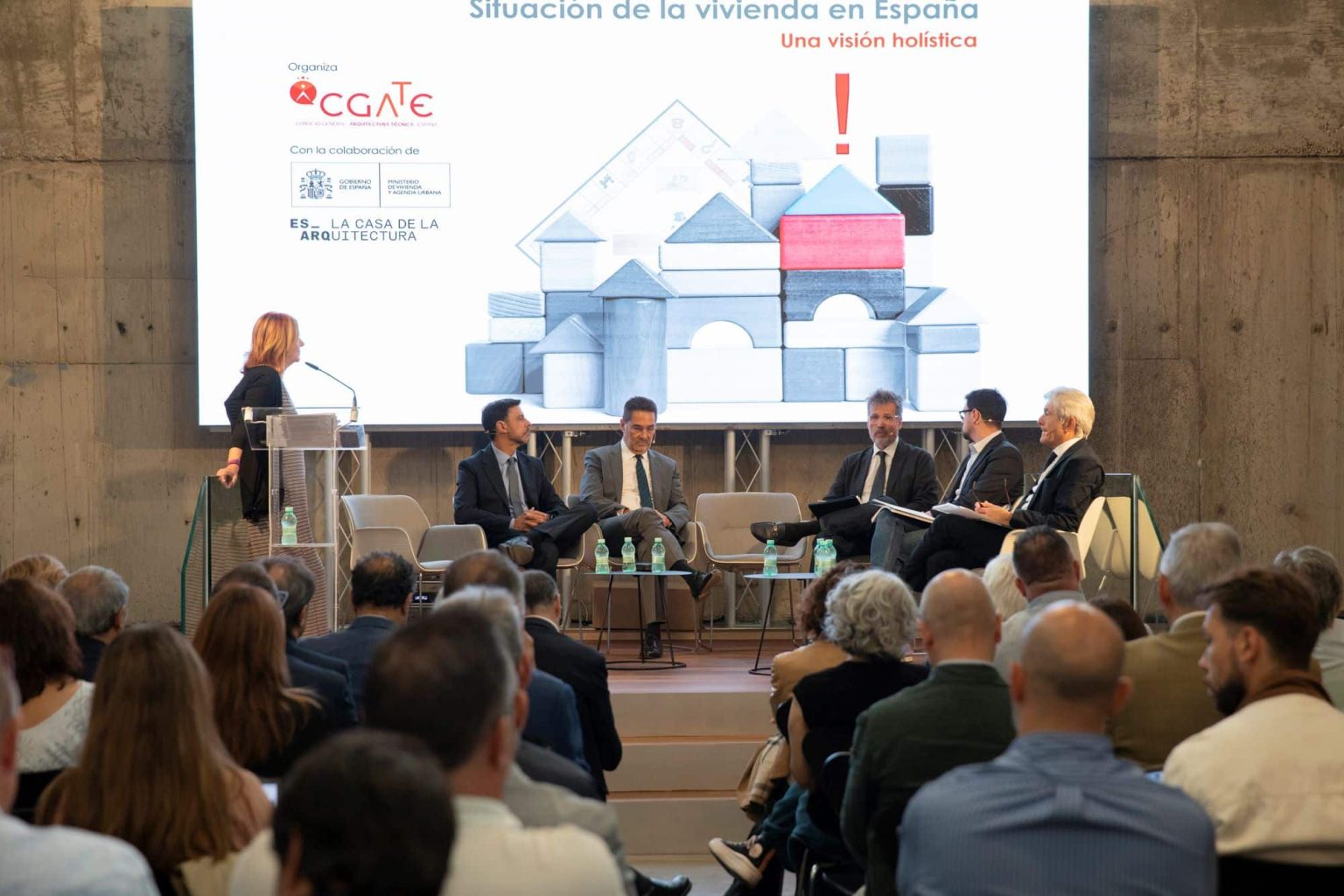The housing situation in Spain has become one of the main concerns for citizens, affecting both their finances and mental health. According to the Report on the Housing Situation in Spain, conducted by the General Council of Technical Architecture of Spain (CGATE) and the company GAD3, housing is, along with healthcare, the third biggest concern among those under 35, and rises to the second place among renters.
The report highlights several key problems that hinder access to housing, such as high prices, difficulties in obtaining credit, shortage of supply, and lack of institutional support. These challenges especially affect young people under 35, who face the greatest difficulties in finding a home.
For those who already have a home, the main concern is the monthly payment. According to the study, 26% of homes in Spain have a mortgage, and 16% are rented. A third of rented households spend between 500 and 800 euros on rent, while for owners, the percentage is 26%. These tensions have led 38% of citizens to feel anxiety about the possibility of losing their home and having to return to their family home.
The report, presented at the House of Architecture in Madrid by Francisco Javier Martín, director general of Housing and Land at the Ministry of Housing, Alfredo Sanz, president of CGATE, and Narciso Michavila, president of GAD3, analyzes the market situation and how the housing crisis affects the physical and mental health of individuals. Alfredo Sanz recalled that housing is a fundamental human right, while Francisco Javier Martín emphasized the need for proactive solutions to improve access and prevent further social problems. Michavila also highlighted that 40% of young people have been forced to move due to economic reasons, exacerbating other challenges such as demographic decline.
The impact of housing on health
According to the report, 60% of the population acknowledges a positive impact of their housing on their emotional and mental well-being, while nearly 40% admit to experiencing stress or anxiety, 30% loneliness, and 23% depression.
However, the data vary significantly depending on income level or individual situation. Thus, the feeling of well-being among homeowners is close to 70% (67%), while it drops to 49% among renters.
Situations of stress or anxiety, loneliness, and depression increase among lower incomes: 58% of citizens earning less than 1,000€ per month claim to experience anxiety, 57% loneliness, and 40% depression. In contrast, those earning more than 5,000€ per month present lower levels of stress (22%), depression (12%), or loneliness (8%).
The elements that most contribute to this well-being are location (70%), lighting and ventilation (67%), and privacy (65%). The report also highlights the growing concern about the materials used in building construction, noting that families with children are the most interested in this aspect (43%).
More support, land for construction, and promotion of rehabilitation
The report on the Housing Situation in Spain also includes some possible solutions suggested by citizens to improve access to housing. The most demanded is the reduction of interest rates (35%), followed by grants for home purchases (27%), and lowering the price of land (25%). In addition, 25% of citizens advocate for the limitation of rental prices and the construction of protected housing.
Among homeowners, there is a need to change or renovate the home to improve their quality of life. Four out of 10 respondents expressed their intention to change homes, while five out of 10 opted for rehabilitation as a measure to improve comfort or accessibility.
After the presentation, a discussion was held to delve deeper into these issues with the participation of key sector experts such as Francisco Javier Martínez, director general of Housing and Land at the Ministry of Housing, Valentín Pich, president of the General Council of Economists, Juan Antonio Gómez-Pintado, president of APCEspaña, Diego S. Garrocho, philosopher and vice-dean of Research at UAM, and José Miguel Gaona, psychiatrist and writer. The meeting was moderated by journalist María José Navarro.
Referrer: MiMub in Spanish
